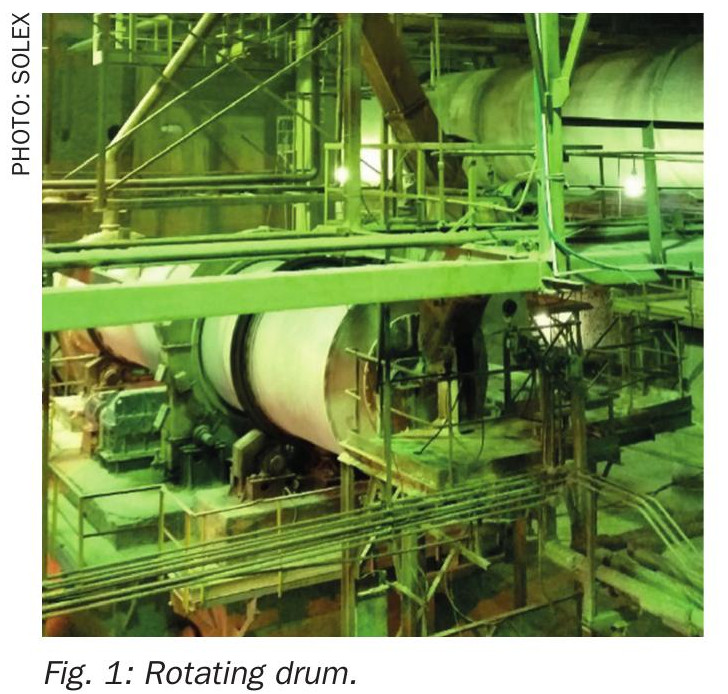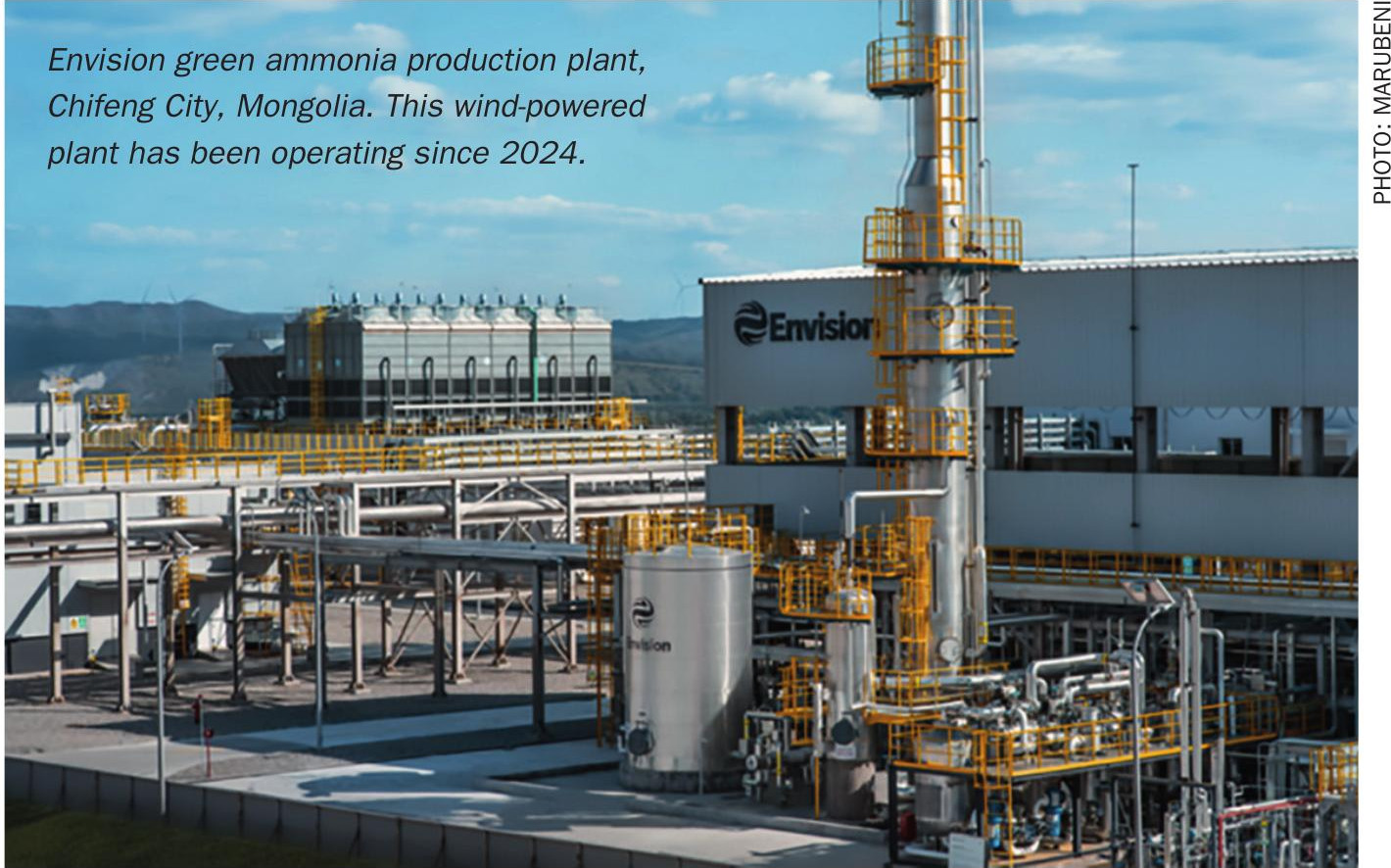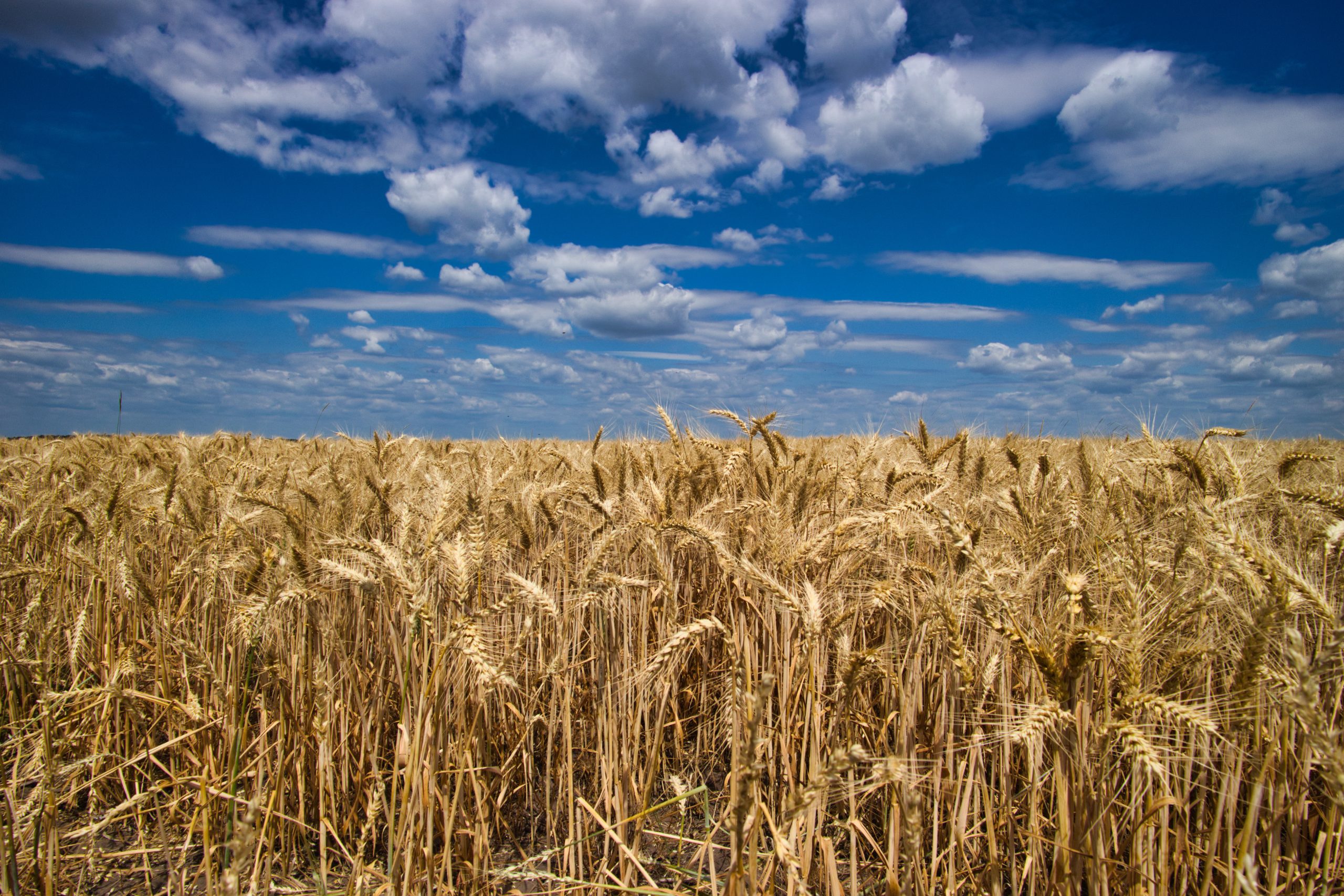Fertilizer International 503 Jul-Aug 2021

31 July 2021
The agronomic advantages of Polysulphate
POLYHALITE TRIAL RESULTS
The agronomic advantages of Polysulphate
Polysulphate is an affordable, easy-to-use, multi-nutrient fertilizer with a low environmental impact. ICL’s chief agronomist, Patricia Imas, highlights the crop benefits of this natural and high-value product.

A multi-nutrient, multi-tasking product
Polysulphate® is a new and unique multi-nutrient fertilizer exclusively mined in the UK by ICL. It is currently the world’s only commercial polyhalite fertilizer.
Containing the natural mineral polyhalite, this valuable product is rich in four key plant nutrients in the following proportions:
- Sulphur (S): 48 percent SO3
- Potassium (K): 14 percent K2 O
- Magnesium (Mg): 6 percent MgO
- Calcium (Ca): 17% CaO.
Importantly, K, Mg and Ca are all provided in sulphate (SO4 ) form.
As a natural crystalline material, Polysulphate has a gentle way of breaking up and gradually releasing the four nutrients it contains as soon as it is applied to the soil. This prolonged-release characteristic is useful as a fresh supply of nutrients are continuously provided throughout the season to match the needs of the growing crop.
Polysulphate, due to its special solubility behaviour, also reduces the risk of leaching in sandy soils and during high rainfall conditions. Valuably, its prolonged released properties and lower susceptibility to leaching help prevent potentially damaging environmental losses.
Steadfast nutrient supply
Polysulphate supplies growing crops with all the sulphur, magnesium and calcium they need. Furthermore, it also replaces a significant proportion of the potassium that would otherwise be lost at harvest – thereby avoiding a potassium deficit for the following crop.
A product that provides four essential nutrients to crops in just one application – as Polysulphate does – is extremely convenient and cost-effective for growers. Supplying these four key nutrients in the right combination and quantity is an additional advantage. This helps deliver the enhanced quality that is so crucial when marketing fresh produce and trying to achieve the best possible financial returns.
Polysulphate is adaptable and makes an ideal natural fertilizer for all type of soils and crops. It is especially suitable for sulphur-hungry crops such as brassicas, cereals, pulses, field vegetables, clover-rich grassland leys and silage crops. The presence of sulphur, by improving nitrogen utilisation by the plant, also increases nitrogen use efficiency (NUE). Balancing sulphur with nitrogen supply is equally crucial for enhancing protein formation in plants.
Polysulphate, due to its low chloride (Cl) content, offers a new fertilization option for chloride-sensitive crops such as tea, tobacco, grapes and other fruits. Low chloride properties are also valued when higher dry-matter content is required in potatoes. Polysulphate, being pH neutral, does not adversely affect the acidity of the soil either. Additionally, its low salt index, in comparison to most equivalent starter fertilizers, makes it a safer product when applied to more sensitive crops.
Balanced and prolonged nutrition
Nutrients taken up by crops from the soil to grow leaves, fruits, roots, seeds or tubers eventually exit the farming ecosystem at harvest. Consequently, large amounts of K, S, Mg and Ca are removed from the soil every growing season. The higher the crop yield, the greater the nutrient uptake, and the larger the nutrient removal. A good potato crop, for example, can remove around 300 kg/ha of potassium (K2 O) and 110 kg/ha of sulphur (SO3 ) at harvest, together with about 20 kg/ha of both calcium (CaO) and magnesium (MgO).
The quality of produce in fruit and vegetable cultivation is more critical than with other crops. Indeed, it is quality that holds the key to securing the best economic returns for fruit and vegetable growers. An adequate supply of K, S, Mg and Ca nutrients provided by Polysulphate helps ensure quality over a wide range of parameters, including size, uniformity, colour, taste and shelf life.
Some nutritional disorders, for example, are caused by low calcium supply to fruits and tubers. These include:
- Bitter pit and internal brown spot in apples
- Internal tip burn in cabbage
- Blossom end rot (BER) in tomato and pepper
- Internal brown spot and hollow heart in potatoes.
Polysulphate avoids such disorders by providing calcium to plants in perfect amounts. The calcium sulphate present dissolves steadily in the soil solution, supplying calcium to crops throughout their growth period.
Approved for use in organic farming
Unlike blended or compound fertilizers, Polysulphate, being a natural mineral fertilizer, easily meets the criteria for use in organic farming systems.
The mineral polyhalite is mined deep below ground in Cleveland, UK. Once brought to the surface, it is simply crushed, screened and bagged as Polysulphate – ready for onward transport and distribution to farms around the world. No chemical separation or complex industrial process are involved. The end result is a naturally pure and simple product for use with all crops.
Polysulphate is widely approved for use in organic agriculture internationally – holding organic certificates in the UK, France, Germany, Austria, Italy, the Netherlands, Hungary, Poland, Brazil and Israel. Additionally, standard and granular grades are OMRI-listed for organic use in the US and Canada. Furthermore, Polysulphate is included on the international list of organic farming inputs approved by regulations in the EU (EC 834/2007), the US (National Organic Program, NOP) and Japan (Japanese Agriculture Standard, JAS).
As well as being an excellent option for organic farmers, Polysulphate is also attractive for conventional farmers looking for a low-cost source of four key nutrients for their crops. In future, all farmers will need access to affordable, easy-to-use, multi-nutrient fertilizers with a low environmental impact. The low carbon footprint of Polysulphate is therefore another benefit that is attractive to organic and conventional growers alike.


The benefits of Polysulphate use in organic farming was demonstrated by a mixed pasture (grass and clover) trial on sandy soil in the Netherlands in 2016 (Figure 1). Its use increased dry matter production by 9.6 percent. Nutritional values of the forage, including feed unit milk (VEM), intestine digestible protein (DVE), and sugar content also improved. The application of Polysulphate generated an estimated additional income of e273/ha for the farmer, based on a price of e0.17/ kg VEM and e0.65/kg DVE.
Lowering farming’s carbon footprint
Polysulphate has the lowest carbon footprint (0.034 kg CO2 e per kg of product) when compared to common fertilizer alternatives, according to the results of a new study (Figure 2). Its production footprint is less than three percent of that of ammonium nitrate, for example. Its low carbon footprint is making Polysulphate the fertilizer of choice for those farmers wishing to manage their carbon usage and lower greenhouse gas emissions from their businesses.


Improving nitrogen use efficiency (NUE)
Polysulphate is nitrogen-free fertilizer. By allowing farmers to separate S and K application from N application, this provides full flexibility with the choice of nitrogen source and application rate. Polysulphate can be applied before planting, for example, while nitrogen can be applied after germination – at the right time for the crop, in the right form, and in right weather conditions. This approach avoids the overapplication of nitrogen and/or leaching. Higher nitrogen use efficiency can therefore be achieved without wastage and unnecessary cost to the farmer, or losses to the environment.
At the same time, Polysulphate can benefit wheat cultivation by delivering better grain protein quality and improving baking quality characteristics. In US wheat trials, the application of Polysulphate reduced the N:S ratio in harvested wheat grains. This helps improve baking quality by optimising dough and bread-making properties (Figure 3). Additionally, lowering this ratio avoids the unwanted asparagine and glutamine accumulations that can result from an S deficiency or an N surplus. Free asparagine is undesirable as it may promote the synthesis of acrylamide, a neurotoxin and potential carcinogen, during the baking process. Polysulphate therefore not only increases wheat yield but can also improve the nutritional qualities of processed products.
Polysulphate, having a high S content while lacking N but with the additional benefit of three other essential nutrients (K, Mg and Ca), is a useful fertilizer for legumes. In a Polysulphate treatment trial in Scotland, the crude protein content of alfalfa (lucerne) increased by about 10 percent. At the same time, the N:S ratio increased to the 12:1 target value required for optimal digestibility.
Making a world of difference to many crops
Potato and other vegetables have shown very good yield and quality responses to Polysulphate in global trials. Consequently, farmers now regularly include Polysulphate in the fertilization schedules for these crops.
A Polysulphate application rate of 400700 kg/ha is generally suitable for potato and vegetables – and can be applied flexibly in several different ways. It can be incorporated straight into the seedbed before planting, for example, or applied as a constituent of a fertilizer blend at sowing or planting. For trees and perennial crops, Polysulphate can also be applied at the base of the tree or bush before the next flush of growth.
Polysulphate trials on potato in China showed that applications boosted yields by 7.4 percent and increased the proportion of large sized potatoes. Similarly, trials in Germany increased potato yield by 11 percent and starch content by four percent, while also reducing the bruising index after storage. In Swedish trials, Polysulphate increased the yields of three cooking potato varieties by 6-11 percent, in comparison to an equal dosage of potassium supplied by sulphate of potash (SOP).
Polysulphate has also been proven to give excellent results with a range of different fruits. In China, its application to five-year-old honey pomelo trees delivered higher fruit yield and better quality – especially the whole fruit size and flesh weight – while lowering fertilizer expenditure. In a pineapple trial in Malaysia, yields of ‘grade A’ fruit increased by 11 percent when using Polysulphate. Pineapple plants also exhibited fewer symptoms of potassium deficiency and were stronger with bigger leaves and larger size fruit. The fruit obtained with the control treatment, in contrast, had a shorter shelf life and lower Brix levels (soluble solids) compared to the Polysulphate treatment (Figure 4).
Good for crops and the environment
Taking all these positive, unique characteristics together, it is not surprising that increasing numbers of farmers across the globe are choosing to use Polysulphate on their crops. It is both a crop-friendly and environmentally-friendly fertilizer suitable for growers of grains, fruits, shoots, roots and tubers. In our experience, this natural and easy-to-apply organic-certified product is fast becoming a key crop nutrition tool for sustainable agriculture all over the world.






